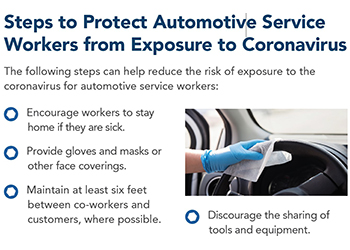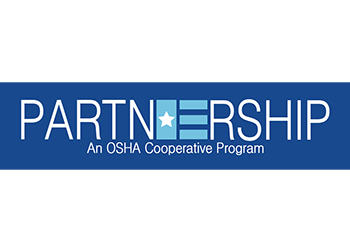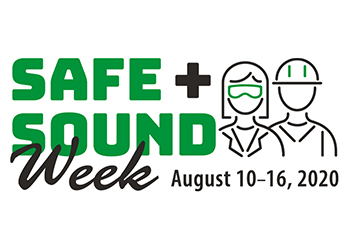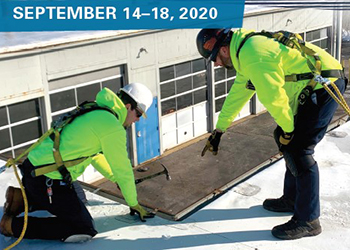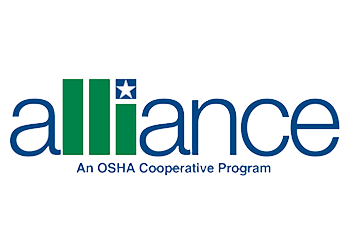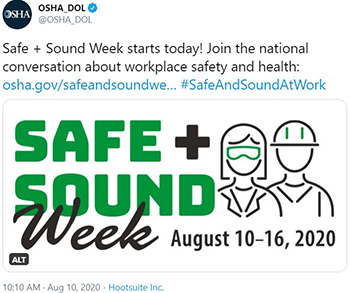August 17, 2020 • Volume 19, Issue 14 • A twice-monthly newsletter with information about workplace safety and health.

Coronavirus Response
OSHA signed an alliance with the North American Meat Institute to provide guidance and training to protect workers in the meatpacking and processing industry.
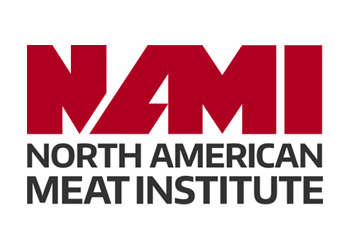
Pandemic Safety Partnership
McCarthy Construction partnered with OSHA and used health screenings, face coverings, and social distancing to protect workers during a medical facility construction project.
Safe + Sound Week
Thank you to the thousands of businesses and organizations that helped make Safe + Sound Week a success.
Fall Prevention
The seventh annual National Stand-Down to Prevent Falls in Construction has been rescheduled for September 14-18.
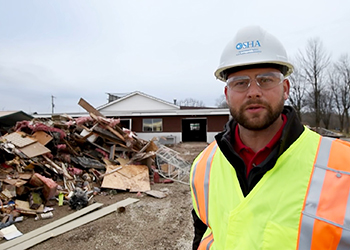
Disaster Response
OSHA has information to protect workers responding to hurricanes, tornadoes, floods, and other natural disasters.
Alliance Promotes Safety
The Global Cold Chain Alliance is partnering with OSHA to serve as an ambassador for workplace safety.
Court Decision
A judge upheld OSHA citations and penalties issued to a manufacturer that falsely claimed violations were abated.
Read about more OSHA enforcement cases.
COVID-19 Q&A
Does wearing a medical/surgical mask or cloth face covering cause unsafe oxygen levels or harmful carbon dioxide levels to the wearer?
No. Medical masks, including surgical masks, are routinely worn by healthcare workers throughout the day as part of their personal protective equipment ensembles and do not compromise their oxygen levels or cause carbon dioxide buildup. They are designed to be breathed through and can protect against respiratory droplets, which are typically much larger than tiny carbon dioxide particles. Consequently, most carbon dioxide particles will either go through the mask or escape along the mask’s loose-fitting perimeter. Some carbon dioxide might collect between the mask and the wearer’s face, but not at unsafe levels.
Like medical masks, cloth face coverings are loose-fitting with no seal and are designed to be breathed through. Workers may easily remove their medical masks or cloth face coverings periodically (and when not in close proximity with others) to eliminate any negligible buildup of carbon dioxide that might occur. Cloth face coverings and medical masks can help prevent the spread of potentially infectious respiratory droplets from the wearer to their co-workers, including when the wearer has COVID-19 and does not know it.


